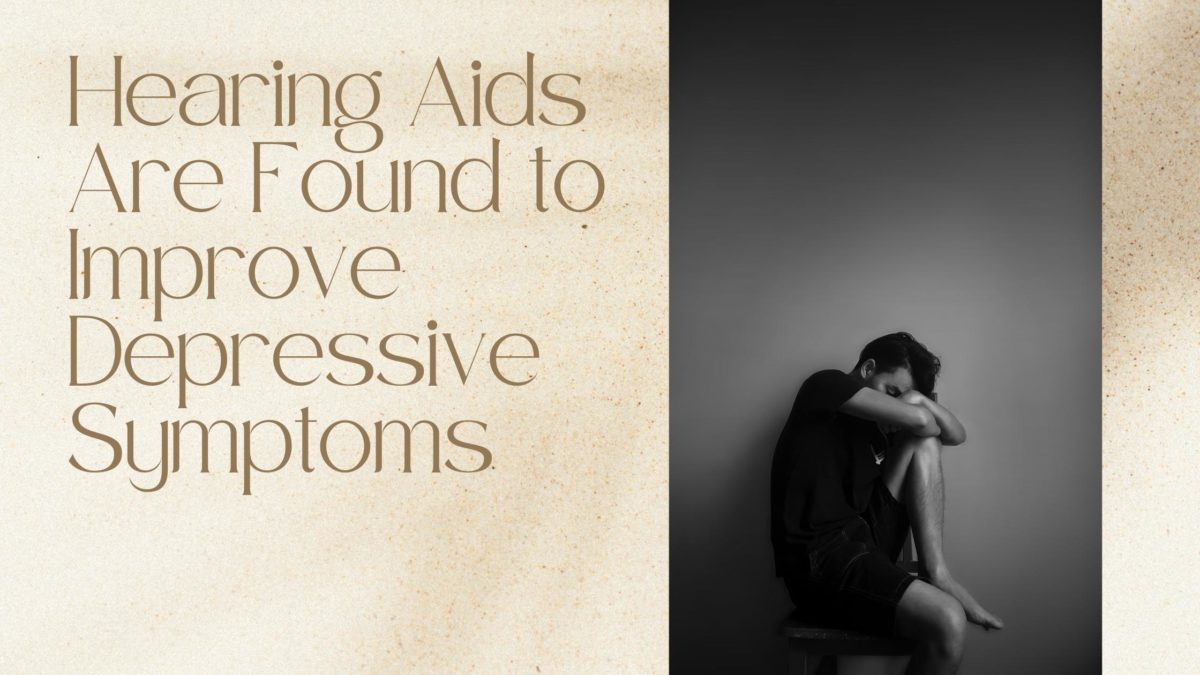Hearing loss impacts millions throughout the United States. With more than one in eight people over the age of 12 demonstrating hearing loss in both ears, we can count the number of those living with hearing loss well into the tens of millions.
Along with having difficulty hearing, people with hearing loss often face other negative mental, emotional, and physical impacts. Particularly troubling is how many self-report feelings of depression that accompany their loss of hearing.
In the past, numerous studies have indicated that intervening in hearing loss with solutions like hearing aids and cochlear implants might reduce feelings of depression. This question was undertaken specifically by scientists within the last decade, whose findings conclusively show that to be true.
More conclusive findings
Between 2011 and 2014, 113 participants 50 years or older and who were candidates for hearing aids or cochlear implants were recruited for the study. Researchers found that treating hearing loss is extremely effective in reducing feelings of depression. There was a significant improvement in depressive symptoms for a majority of participants at both 6 months and 12 months after the time of intervention.
Why depression accompanies hearing loss
It may come as a surprise to learn that depression is a major concern in people with hearing loss. But, if you consider the ways that having trouble hearing impacts our ability to connect with others, it begins to make more sense.
As humans, we are fundamentally social animals. We feel safe and thrive when we are part of a community, and our verbal conversations are the doorways into those relationships that keep our levels of connection and feelings of community strong.
When hearing loss enters the picture, people can begin to feel isolated. Conversation and connection become effortful at best. Particularly for those who experience hearing loss later in life, it can be difficult to socialize when what was once an effortless act now becomes exhausting.
How hearing loss works
What makes dealing with hearing loss as an older person so frustrating is that its onset can be gradual. Most people with later onset hearing loss have age-related hearing loss or noise-induced hearing loss. In both cases, the sensitive cells of the inner ear either begin to decay due to the natural aging process or are damaged over time due to exposure to excessive noise.
These cells are integral to the hearing process — they collect the sound information gathered by the ear itself and transmit those signals to the brain’s centers for processing. These cells are non-regenerative, which means that when we lose them, they do not repair themselves or rebuild. What happens is that we hear less of the external world.
Early symptoms of hearing loss
Because these losses happen slowly and over time, we adapt to their loss sometimes subconsciously. It’s not unusual for our friends and family to notice our hearing loss before we do.
The first symptoms usually include having trouble with speech recognition. You might find yourself saying, ‘what?’ much more often in conversation because it sounds like people are mumbling their words. You also might have more difficulty hearing on the phone with others or you’ve cranked up the volume to its highest levels to make out dialogue on television.
Interventions can work
We are lucky to be living in a time when they are resources available to people with hearing loss. While we can’t reverse the effects of time and restore perfect hearing, hearing aids or cochlear implants can give us back sounds that we have lost. Today’s hearing aids are smarter, smaller, and more powerful than ever before. They are proven to reduce feelings of depression. Most hearing aid wearers are happy with their investment and would recommend hearing aids to a friend.
People with hearing loss also have access to all sorts of support in the form of groups and forums. You can find hearing loss support groups in your area with a quick google search. Or, if you prefer to interact with folks online, simply look for an online community to join. In these spaces, you can connect with people facing the same difficulties who can really understand what you’re going through. These types of meetings can help ease the feeling of isolation and help you feel interwoven with the larger world.

